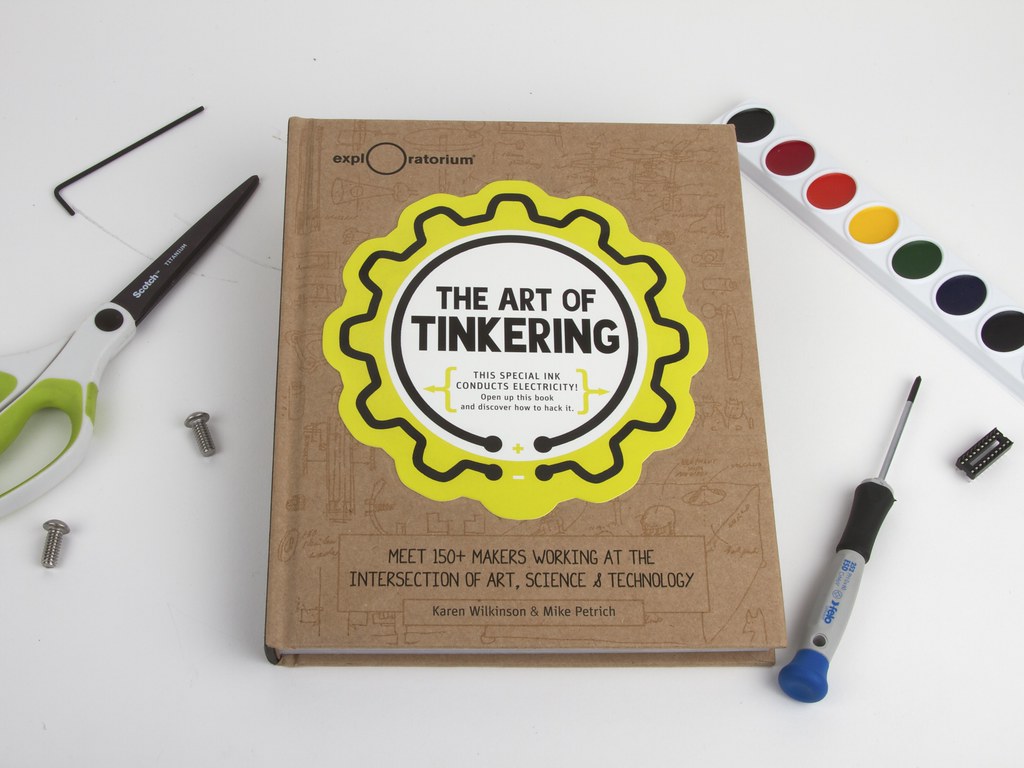Messing Around
In the Living with New Media report messing around involves experimenting and exploring and doing things just to learn more. It is more of a tinkering culture, a figuring things out, something I feel is where I am almost stagnant at least in some aspects of tech. I've been playing around with code, but I definitely haven't geeked out. I've been working on the blog, but again, more tinkering and exploring.
 |
Tinkering and Connectivism
Tinkering fits nicely with a connectivist viewpoint. Connectivism as George Siemens describes it is a fuzzy process which involves tinkering and no longer just happens at school or just from humans. We can tinker with things, or converse with people and our knowledge grows.
The ability to see connections between things, and create connections is a valuable skill according to Siemens. We need to help our students make those connections, and technology is one way we can connect people to sources of information.
Tinkering with things allows us to experience, which we can then share with others to not only consume knowledge but to produce it.
 |
Slow Down
For me, slowing down and seeing or making the connections is an important step in the process. Slow education involves making those connections and deepening our understanding, maybe even "geeking out". We are sharing our process together, so we need to take the time to develop our community, learn together, tinker together, wonder together. Connectivism doesn't see our learning as dumping information, it is a process of looking for connections, meeting people, learning more, and directing ourselves. As Siemens said we need the opportunity to plug into knowledge when we don't have it, but sometimes I think it's important to slow down and see where the outlet actually is.
I think we stop messing around when we start to dig deeper into things. Slowing down, looking at systems and making connections is a great way for us to start making these connections.
Hi Joe,
ReplyDeleteI love the link to slow education. I totally get that and so often students are in such a rush to get to the final outcome that they neglect the importance of the process and what is being discovered and developed along the way. I am an advocate for the process, being an art teacher frequently the focus is on the outcome, the painting or sculpture but the real learning occurs in the discovery stage, the messing about. To tinker is to learn, right?
I have always followed the slow food society, having spend many years in Italy, it just makes sense. I am starting a unit with my Grade 7s later this term on Sustainability so much of the website is extremely helpful to solidify my thinking and planning.
I will share your thinking with colleagues and my students this coming week, to help them to stop and slow down.
Thanks so much for sharing
Nicki
Nicki,
ReplyDeleteThanks so much, I love the whole slow movement too!
I know as teachers, we are so often rushed to the outcome as well, taking our time to deliver as much content as we can. It's difficult because we think they need content, but I think it might be really helpful to get them into the process of learning.
I'm not an artist at all, but when I look at paintings, I think about the process (which is well beyond me) I think that's maybe why Pollack has always been so interesting in me. The outcome is just the outcome, the art is all in the making?